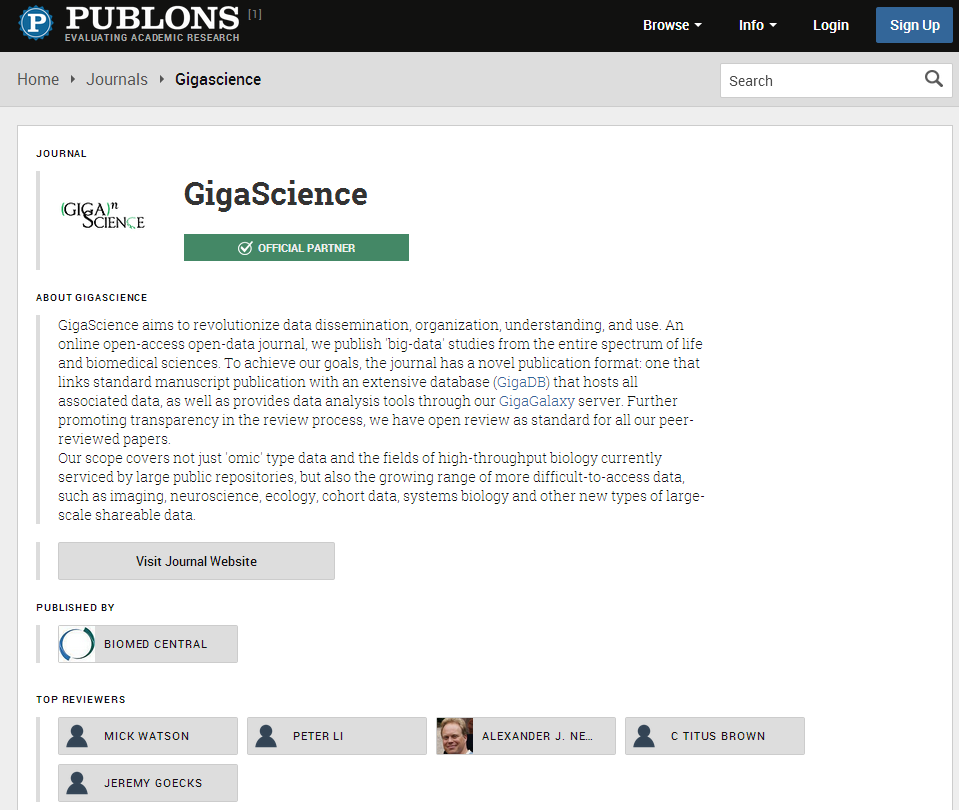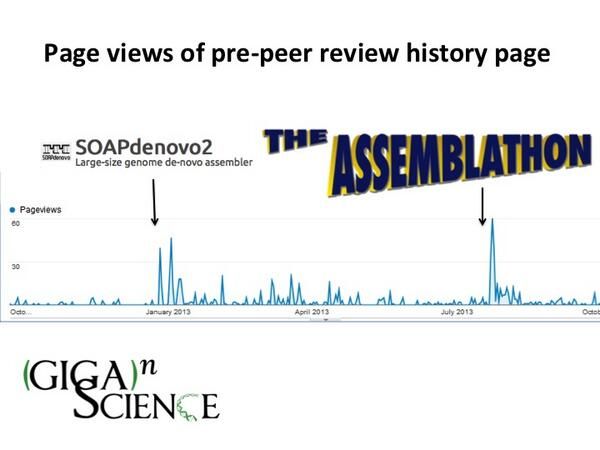Being open is what GigaScience is all about – open access, open data, open peer review; giving credit to authors and peer reviewers. But now GigaScience peer reviewers can get further recognised for their efforts through our formal partnership with Publons –an exciting, innovative approach that gives peer reviewers due credit for the work that they do.
Publons works by taking a copy of an open peer review report from a journal website, reviewers are then informed that they have the option to ‘claim’ their review on Publons and create their reviewer profile. The benefits of which is that individuals are able to add extra information about reviews they have completed across different journals and publishers –constructing an ample collection of their contribution to the scholarly publication process.
As well as being a library of reviews, Publons enables post-publication peer review of articles and works with publishers to verify their peer reviewers. The ability to easily access reviews through Publons is in line with GigaScience’s open ethos– improving reproducibility in research, as well as further fostering transparency in science with our open peer review process as standard (with the ability to opt out).
We feel that open peer review promotes accountability, fairness and importantly, gives credit to reviewers for their hard work. And now with GigaScience’s formal partnership with Publons, peer reviewers are able to officially claim credit for their efforts – since Publons supports both pre- and post-publication peer review, points are allocated depending on when the review was made and the level of openness.
As with all our textual content (see blog), our open peer-reviewers’ reports are published under a CC-BY license (open to anyone to reuse with attribution) and our partnership with Publons demonstrates the type of re-use that is possible by doing this.
We’ve been impressed with the interest and accesses our reviews have had (see figure demonstrating accesses of the pre-peer review history pages of popular papers), and have been impressed with the discussion and feedback that can ensue when making this information available (particularly for the Assemblathon “meta” peer-review). The increased visibility and discoverability of these reviews through Publons should aid this even further.
Comments